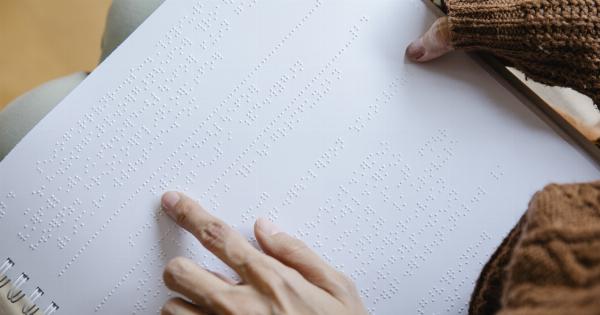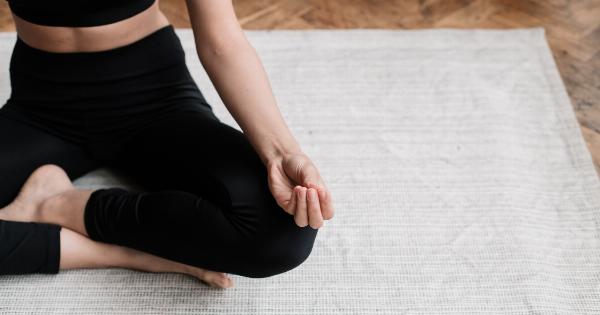Do you often experience nighttime hand numbness? This condition is common among people of all ages. It can be caused by various factors like poor sleep position, nerve compression, or underlying health problems like diabetes and hypothyroidism.
Regardless of its cause, waking up with a numb hand can be bothersome as it not only disrupts your sleep but also affects your daily routine. In this article, we’ve compiled 30 ways to help you get rid of nighttime hand numbness.
1. Change Your Sleeping Position
One of the most common causes of nighttime hand numbness is sleeping in the wrong position that compresses the nerves. Try to sleep on your back or side and avoid sleeping on your stomach or with your arms under your body.
2. Use A Comfortable Pillow
A pillow that’s too high or too firm can put pressure on your neck and nerves, leading to numbness. Opt for a pillow that supports your neck and keeps your head level with your spine.
3. Adjust The Room Temperature
Keeping the room too cold can make your hands go numb. Try adjusting the temperature to keep it warm and comfortable.
4. Wear Compression Gloves
Compression gloves can improve blood circulation in your hands and reduce numbness. They also provide support to your hands and wrists.
5. Stretch Before Bed
Stretching your hands and arms before bed can help reduce tension and compression on the nerves. Try doing simple hand and wrist stretches for a few minutes before sleeping.
6. Massage Your Hands and Arms
A gentle massage can help improve blood flow and reduce compression on the nerves. Try massaging your hands and arms with a gentle pressure before bed.
7. Use A Warm Compress
Applying a warm compress to your hands can help relax the muscles and improve blood circulation. Use a warm towel or a heating pad before sleeping.
8. Drink Plenty of Water
Dehydration can cause numbness in the hands. Make sure to drink plenty of water throughout the day to keep your body hydrated.
9. Avoid Caffeine Before Bed
Caffeine can cause dehydration and interfere with your sleep. Avoid drinking caffeine or any stimulants before bed.
10. Elevate Your Hands
Try elevating your hands above your heart before sleeping. This can help improve blood flow and reduce pressure on the nerves.
11. Wear A Wrist Splint
If your hand numbness is caused by carpal tunnel syndrome or other wrist-related issues, wearing a wrist splint can help relieve pressure on the nerve.
12. Take A Warm Bath
A warm bath before bed can help relax your muscles and relieve tension, reducing the risk of hand numbness. Add some Epsom salt to the bathwater to help soothe soreness and promote relaxation.
13. Use Ergonomic Tools
Using ergonomic tools like a keyboard and mouse can help reduce the strain on your hands and wrists, preventing hand numbness from occurring.
14. Use Acupuncture
Acupuncture is an alternative therapy that can help improve blood flow and reduce tension in the muscles. Talk to your healthcare provider to see if acupuncture is right for you.
15. Use Essential Oils
Essential oils like lavender and chamomile can help promote relaxation, reducing the risk of hand numbness. Add a few drops of essential oil to your bathwater or use a diffuser before bed.
16. Take Breaks
If you spend a lot of time typing or using a computer, taking frequent breaks can help reduce muscle tension and prevent hand numbness.
17. Do Hand Strengthening Exercises
Weakness in the hands can lead to numbness. Try doing simple hand strengthening exercises to improve muscle strength.
18. Use Cold Therapy
Applying a cold compress can help reduce inflammation and numbness. Use a cold pack or a bag of ice wrapped in a towel for a few minutes.
19. Take Magnesium Supplements
Magnesium is an essential mineral that helps relax muscles and improve nerve function. Taking magnesium supplements can help prevent hand numbness.
20. Practice Yoga
Yoga is a form of exercise that can improve flexibility, reduce tension, and improve blood flow. Try doing simple yoga poses like the downward dog before bed.
21. Cut Back on Alcohol
Alcohol can cause dehydration and interfere with your sleep, leading to hand numbness. Limit your alcohol consumption before bed.
22. Quit Smoking
Smoking can cause inflammation and reduce blood flow, increasing the risk of hand numbness. Quitting smoking can help improve your overall health and reduce symptoms.
23. Take Vitamin B6 Supplements
Vitamin B6 helps improve nerve function and reduce inflammation, reducing the risk of hand numbness. Taking vitamin B6 supplements can be beneficial.
24. Use A Tennis Ball
Rolling a tennis ball on your hand and forearms can help reduce tension and improve blood flow. Do this for a few minutes before bed.
25. Use Aromatherapy
Aromatherapy can help promote relaxation and reduce tension, reducing the risk of hand numbness. Use a diffuser with essential oils before bed.
26. Wear Proper Footwear
Poor footwear can cause poor posture and increase the risk of hand numbness. Wear proper footwear that supports your feet and reduces strain on your body.
27. Reduce Stress
Stress can cause tension and increase the risk of hand numbness. Try reducing stress through relaxation techniques like deep breathing and meditation.
28. Stay Active
Exercise can help improve blood flow, reduce tension, and improve muscle strength, reducing the risk of hand numbness. Try to stay active throughout the day.
29. Visit A Chiropractor
Chiropractic adjustments can help improve nerve function and reduce tension in the muscles, reducing the risk of hand numbness.
30. Talk To Your Healthcare Provider
If your hand numbness persists or affects your daily routine, talk to your healthcare provider. They can diagnose the underlying cause and recommend appropriate treatment.




























